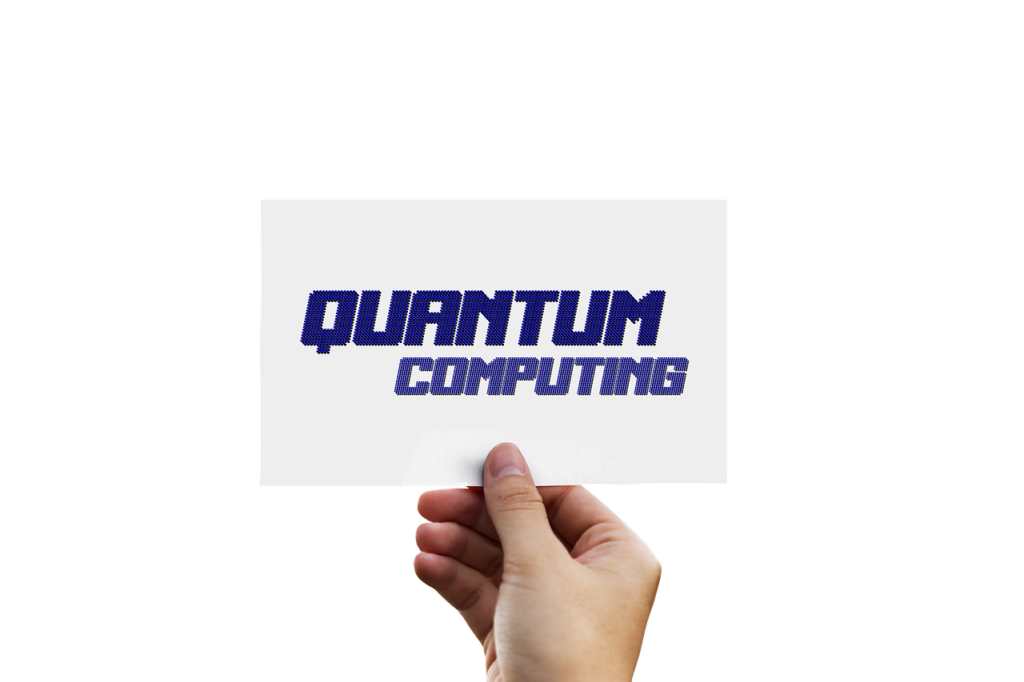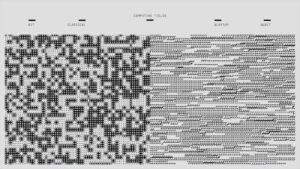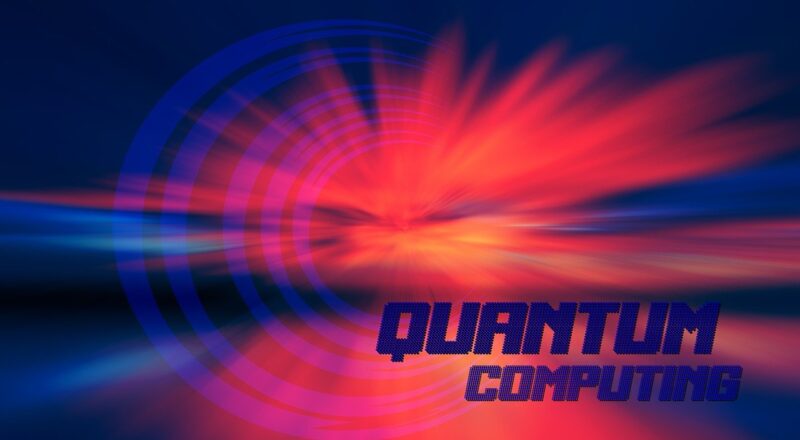Quantum computing Guide | What Is Quantum Computing?
QC- Quantum computing is an field of computer science that utilizes the quantum theory.. Quantum theory describes the behaviour of matter and energy on the subatomic and atomic scales..
QC (Quantum computing) uses subatomic particles like electrons and photons.. Quantum bits also known as qubits allow particles to be in multiple states (ie.. 1 between 1 and 0) simultaneously..
It is possible that linked qubits “exploit the interplay between quantum states that resemble waveforms to carry out calculations that would otherwise require millions of years..
Traditional computers use an electrical signal (1 and 1 and) in a binary fashion to encode data in bits.. They are unable to process information when compared with quantum computing..

- How do quantum computers work?
- The fundamental principles of quantum computing
- Uses and Benefits of Quantum Computing
- Features of Quantum Computing
- Limitations of Quantum Computing
- Quantum Computer vs.. Classical Computer
- Quantum Computers In Development
- What Is Quantum Computing in Simplest Terms?
- How Hard Is It to Build a Quantum Computer?
- How Much Does a Quantum Computer Cost?
- How Fast Is a Quantum Computer?
How do quantum computers work?
The main difference between classic and quantum computers is the fact that quantum computers employ qubits instead of bits to store exponentially more data.. Although quantum computing uses bits they process information in a different way than conventional computers.. What are qubits? And what is their origin?
Qubits?
Scientists can create qubits by manipulating and analyzing quantum particles (the tiny known components of the universe) like electrons, photons, atoms, and ions. Qubits can also create systems that behave like quantum particles, especially when researchers use superconducting systems.
To manipulate these particles, scientists should keep qubits frigid to limit noise and ensure accurate results without mistakes caused by unintentional incoherence.
Researchers utilize numerous types of qubits for quantum computing, and some qubits suit various types of work better than others.
Below is a list of some of the most commonly used types of qubits:
Qubits with superconductivity:
Made by superconducting material that operate at very low temperatures the qubits are popular by their efficiency in calculations and fine tuning control..
Qubits with Trapped Ions:
Researchers can utilize trapped ion particles for qubits, and they consider these particles to have long coherence times and high-fidelity measurements.
Quantum dots:
Quantum dots are tiny semiconductors which capture one electron to use as a qubit.. They offer promising possibilities for scaling and compatibility with current semiconductor technology..
Photons:
Photons are tiny light particles that scientists use to transmit quantum information over long distances via optical fiber cables. Researchers utilize them in the present for quantum communication as well as quantum cryptography..
Neutral atoms:
Commonly, lasers charge natural neutral atoms, making them suitable for scaling and carrying out the operations.
When you process a complicated problem like factoring huge amounts of data, traditional bits become tied up because they can hold large amounts of information.
Quantum bits operate differently.. Qubits have the ability to be the superposition of a computer that is based on qubits may tackle the issue differently than conventional computer systems..
For a useful analogy to comprehending how quantum computers make use of qubits to tackle complex problems Imagine that youre standing in the middle of a complex maze.. To get out of the maze conventional computers would need in order to “brute force” the problem by trying every possible path to reach the way out.. A computer like this will use bits to find possibilities and keep track of the ones that are not viable..
Quantum computers may be able to create a birds eye image of the maze and test different paths in parallel and using quantum interference to determine the best answer.. But quantum computers dont have the capability of testing several paths simultaneously; Instead quantum computers analyze the amplitudes of probability qubits for determining the result.. They function as waves that overlap and interfere against each other.. If asynchronous waves intersect they effectively block out possible solutions for complex issues and the coherent or realized waves offer the best solution..
The fundamental principles of quantum computing
If you are discussing quantum computers it is crucial to realize that quantum mechanics does not work similar to traditional physical science.. Quantum particles behavior are often viewed as odd unintuitive or absurd.. However the quantum laws of mechanics determine the rules of the world..
The description of the quantum behavior of particles is a challenging task.. The most common sense models for the natural world do not possess any language that can describe the awe inspiring behavior that quantum particles exhibit..
In order to understand quantum computing it is crucial to comprehend some key words:
- Superposition
- Entanglement
- Decoherence
- Interference..
Superposition
Qubits aren’t really efficient.. However, it can put the quantum information that it stores into a superposition, creating a mixture of the various configurations that the qubit can make. Superposition of groups of qubits are able to create multidimensional complex computational space.. Complex issues can be expressed by new ways within these areas..
The superposition of qubits provides quantum computers the inherent ability for parallel processing that allows the processing of many inputs at once..
Entanglement
Entanglement is the capacity of qubits in a quantum system to connect their status with qubits of different..
Entangled systems connect so tightly that when quantum processors analyze the entangled state of a single qubit, they immediately obtain details about the other qubits in the system.
When we examine a quantum system, it dissolves into a superposition of possible states, which we can then interpret as a binary code represented by either a zero or one.
Decoherence
Decoherence refers to the method by where a system operating that is in a quantum state deteriorates to a nonquantum state.. This can happen when someone intentionally activates it through the measurement of a quantum system or when environmental conditions cause it (sometimes those factors can trigger it without intention).Decoherence lets quantum computers perform measurements as well as connect with traditional computers..
Read more: Neuromorphic Computing: The Future of AI-Powered Processors
Read more: Metaverse Real Estate: Buying Virtual Land in the Digital World
Read more: Federated Learning in Computer Vision Step by Step Guide 2024
Interference
A system of entangled qubits placed in a state of superposition collectively structures information to display like waves, with different amplitudes linked to each outcome. Researchers can use these amplitudes to calculate the probabilities of results from an analysis conducted on the systems. The waves may build upon one another when a lot have a peak in the same time or they can cancel one another out if peaks and troughs interfer.. The amplifying of probabilities or the cancelling out the other are two forms of interference..
Uses and Benefits of Quantum Computing
Quantum computing could contribute greatly to security financial defense and intelligence Drug design and discovery design aerospace utilities (nuclear Fusion) and polymer design machine learning as well as artificial intelligence (AI) Big Data search and even digital manufacturing..
Quantum computers can be utilized for enhancing the safe exchange of information.. Also to enhance radars and their capabilities to recognize aircraft and missiles.. Another area in which quantum computing could assist is in the protection of the environment and maintaining water purity with chemical sensors..
These are the potential advantages of quantum computing..
- Financial institutions might have the ability to utilize quantum computing in order to develop more efficient and effective portfolios of investments for retail and institutional customers.. They can focus on developing more efficient trading simulations as well as improving the detection of fraud..
- Healthcare companies could utilize quantum computing to create novel drugs as well as genetically targeted medical treatment.. This could be a way to power the most advanced DNA research..
- To ensure greater security online quantum computing could help develop better data encryption techniques and methods to utilize lights to find out who is intruding inside the network..
- Quantum computing can be used to create more efficient and safer traffic and aircraft system..
40%
A percentage of major companies are planning to launch initiatives centered about quantum computing before 2025 as per studies conducted from Gartner..6
Features of Quantum Computing
Superposition and entanglement are just two characteristics of quantum physics upon the basis of which quantum computing operates.. These enable quantum computers to perform operations at speeds that are exponentially greater than standard computers and also with a lower use of energy..
Superposition
According to IBM the qubits capabilities are what qubit does rather than the thing it does that’s amazing.. Qubits place the quantum information it holds into a state of superposition.. This term describes a mix of the various configurations that qubits can create. Groups of superposed qubits can create multidimensional complex computational spaces. These areas allow for innovative expressions of complex problems.
Entanglement
Entanglement is an integral part of quantum computing’s capabilities.. Qubits that are in pairs could be made interconnected.. The two qubits will then be in one state.. When they are in a similar situation changing one qubit directly impacts the other one in the way thats easy to predict..
Quantum algorithms are developed to exploit this relation to resolve difficult challenges.. When doubling the amount of bits inside a classic computer can double its processing capabilities the addition of qubits leads to the exponential growth of processing power and ability..
Decoherence
Decoherence is a phenomenon that occurs in the event that quantum behavior of qubits degrades.. The quantum state may quickly be altered by sudden temperatures or vibrations.. The qubits could be out of superposition and lead to errors appearing in computer programs.. It is essential that qubits are shielded from interference with like supercooled refrigerators insulation as well as vacuum chambers..
Limitations of Quantum Computing
Quantum computing offers enormous potential to develop and solve problems in a variety of industries.. Yet for the moment there are limitations to it..

- Decoherence or decay could be caused by even just the smallest disturbances in the quantum environment.. The result is the suffocation of calculations or the occurrence of errors in their accuracy or even the occurrence of errors.. In the above paragraph the quantum computer should be shielded from possible interference from outside during the computing process..
- The correction of errors in the computing phase isnt yet perfected.. Therefore computations arent always reliable.. Because qubits arent digital data bits They arent eligible for the traditional error correction methods that are used in classical computers..
- The results of computation can cause corruption to the results.. There are developments such as a specific search algorithm in databases which ensures that the process of measuring causes the quantum state to disintegrate into the proper result hold promise..
- Quantum cryptography and security is still not completely realized..
- Insufficient qubits stop quantum computers from achieving their capabilities for a significant impact.. Researchers havent yet produced over 128 according to 2019..
As per the worlds energy leader Iberdola “quantum computers must have almost no atmospheric pressure an ambient temperature close to absolute zero ( 273degC) and insulation from the earths magnetic field to prevent the atoms from moving colliding with each other or interacting with the environment..”
“In further the systems are only operational only for a short period of time.. This means the data is damaged and is not able to be saved which makes it harder to retrieve the information..
Quantum Computer vs.. Classical Computer
Quantum computers feature a less basic design than conventional computers.. They dont have any memory or processor.. What a quantum computer needs is a collection of superconducting qubits..
Quantum computers as well as classical computers use different methods to process data.. A quantum computer uses qubits to run multidimensional quantum algorithms.. The processing power of quantum computers is increased exponentially when qubits are added.. The classical processor utilizes bits to run a variety of applications.. The power of their processor increases as the number of bits added.. Classical computer systems have lower processing capacity..
Classical computers are ideal to use for every day tasks.. They offer low errors.. Quantum computers work best for higher levels of work e..g.. running simulations or analysing the data (such in clinical trials in the field of drugs or chemicals) as well as creating battery packs that use less energy.. Quantum computers can also be prone to extremely high errors..
Classic computers do not require any special maintenance.. They can use an internal fan in order to avoid excessively heating.. To shield quantum processors from even the smallest vibrations, we must keep them very cool. We can accomplish this purpose by utilizing supercooled super fluids.
Quantum computers are much more costly and more difficult to construct as compared to traditional computers..
In the year 2019 Google showed a quantum computer capable of solving a task within minutes which would normally take an ordinary computer ten years..
Quantum Computers In Development
Google :
- Google is investing billions of dollars in order to construct its quantum computer before 2029..
- It has established a campus in California named (Google) AI to help it achieve this goal.. When it is developed Google could launch a quantum computing application through the cloud..
IBM:
IBM is planning to put an quantum computer with a capacity of 1000 qubits the market by 2023.. In the meantime IBM allows access to its quantum computers to researchers from organisations universities as well as laboratories that are a included in its Quantum Network..
Microsoft:
Microsoft provides companies with access to quantum technologies through the Azure Quantum platform..
Others:
There is interest in quantum computing and its tech from firms in the financial sector like JPMorgan Chase and Visa..
What Is Quantum Computing in Simplest Terms?
Quantum computing relates to computing done by quantum computers.. In comparison to traditional computation performed with a conventional computer, quantum computers can hold more information and utilize better algorithms. This means that it can complete the most complex of tasks quicker..
How Hard Is It to Build a Quantum Computer?
The process of building a quantum computer can take many years and is extremely expensive.. Google is working on creating a quantum computer over the last few many years and has invested millions of dollars.. Google expects to be able to make its quantum computer operational in 2029..11 In November of 2022 Google announced a 433 qubit system.. It was followed one year later with IBM in announcing the Condor superconducting quantum processor with qubits.. Then IBM put out its 2033 year roadmap and stated that it wanted to build Blue Jay a system capable of running 1 billion gates over two thousand qubits by 2033..
How Much Does a Quantum Computer Cost?
A quantum computer would cost billions to make.. In 2020 the Chinese company Shenzhen SpinQ Technology planned to offer a quantum desktop computer to students at universities and schools.. In the previous year it had begun selling a quantum computer at $50000..
How Fast Is a Quantum Computer?
The quantum computer can be several times more efficient than conventional computers or supercomputer.. Google’s quantum computer in development, Sycamore, reportedly completed a computation in just 200 seconds, contrasting with the 10,000 years that one of the fastest machines, IBM’s Summit, would need to finish it. IBM disputed Google’s claim that its supercomputer can complete the task within 2.5 days. However its still 1000 times slower than the quantum machine..
click here – Edge computing Master Guide 2024
Read more: Simple Budget-Friendly Sustainable Living Tips
Read more: Digital Twins: Revolutionizing Simulation and Modeling in Industry
Read more: Edge AI: Bringing Artificial Intelligence Closer to Devices


